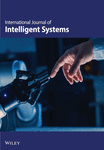On random sets, knowledge acquisition, and pattern recognition
Abstract
In this article, we investigate knowledge acquisition and pattern recognition by using the principles of random sets. Based on random set theory, we develop some estimation theorems and procedures for set-valued statistics, such as nonparametric estimators and set-valuedization techniques. Under random interval assumption, we establish some special possibility distributions that can be easily implemented in knowledge acquisition tools. The knowledge studied here are rules describing relationships between various concepts, as used in diagnosis (pattern recognition) expert systems. Several examples are given to illustrate the estimation theorems and procedures for the acquisition of concepts and relationships. We use our acquisition techniques on a modeling prediction example in two different ways: One is by acquiring the concepts and relationships simultaneously; another is by acquiring rules for predefined concepts. On two classification problems, we use our methods to acquire classification rules. The results are compared with several machine learning methods. © 1996 John Wiley & Sons, Inc.




